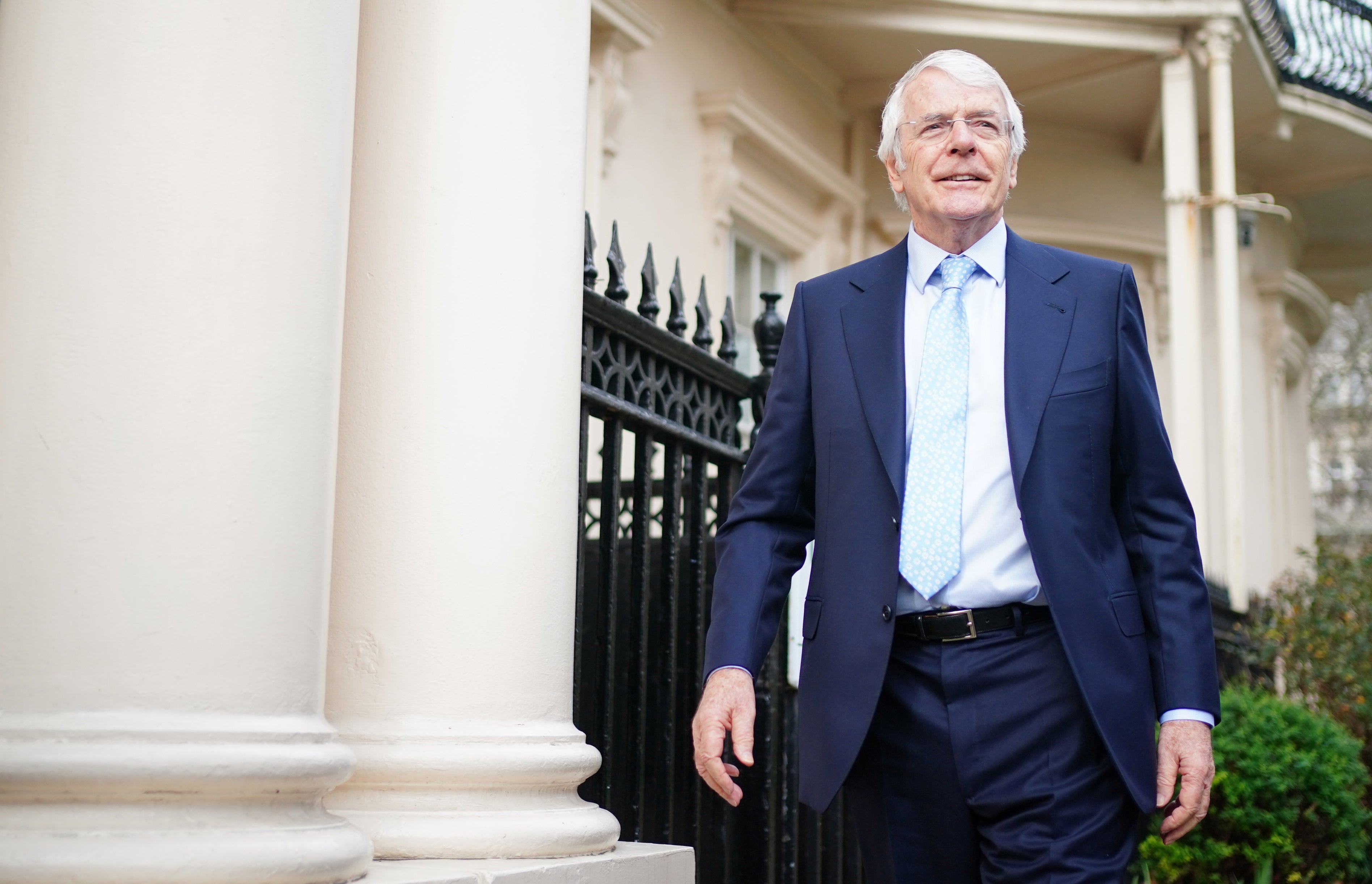
Sir John Major has spoken fondly of his memories working with the Queen, describing her service to the country as “impeccable” and suggesting she would have made a good addition to the Cabinet.
The former prime minister, who was in office from 1990 to 1997, said the monarch has “represented our better selves for over 70 years”, which he said goes some way to explaining her popularity.
He said his weekly meetings with the Queen during his tenure as PM were not a “duty”, but “something to be looked forward to”.
“In many ways, it was cathartic,” he said.
“You could discuss things with the Queen that you couldn’t really discuss with hardly anybody else. Politics even amongst the closest of colleagues tends (to be) … a little leaky.
“The one thing about the meetings with the Queen (was) nobody is there, just the corgis – behaving or not as the case may be, usually behaving – and you could speak in absolute privacy. There’s no private secretary there. No notes are made.
“You can say exactly what you wish, exactly what is on your mind. And so can the Queen. So that is very valuable.”
You could discuss things with the Queen that you couldn't really discuss with hardly anybody else
He said she was a good listener, but “more relevantly”, a “good questioner”.
“Gently, she asks the right questions,” he said.
“I think people would be surprised at the depth of knowledge she has of how people who are not close to the monarchy actually live in their own lives.
“She knows a great deal about it and her questions are often very, very pertinent. It was always extremely useful, because it was a completely external view from someone who knew politics, who had been looking at state papers for 28 years.”
Sir John said he often came away from his meetings with the monarch thinking to himself “what a shame she isn’t in the Cabinet”.
He added: “But I have to say to you I’m not sure she shared that view. But I think not sharing the view is another example of her wisdom.”
The former PM described the Queen as a “hidden asset”.

“She’s part of our soft power. You only have to see that whenever you see her with presidents or prime ministers of other countries. You saw it recently at the G7. You see it in spades at the Commonwealth conference,” he said.
“You see the worldwide reach of the monarchy. When people in almost every part of the world, almost every part of the world, speak of the Queen, they mean our Queen.”
Sir John reflected on the Queen’s capacity to “put things in a box, to realise they pass and they’re not eternal”.
“She is, amongst other things, a stoic. And I think at the difficult times her instinct was to put her head down and keep going,” he said.
“And this too shall pass – I think – was her motto. And whatever happens the daffodils will be there next spring.”
Asked how he thinks the monarch has retained her popularity over her 70-year reign, he said: “It is extraordinary, isn’t it?”
He added: “I mean, I cannot think of any other public figure, any other celebrity, any other president, if we had a political president, who could possibly have remained so popular – and after 70 years, the country would be en fete, celebrating the fact that they’ve been there for 70 years. It is quite unique.
I think at the difficult times her instinct was to put her head down and keep going
“I think there are a number of reasons for it. The monarchy has evolved. It’s immeasurably different from the monarchy of 1952. Much more open, much more informal.
“And for those 70 years, the Queen has effectively been the ship of state as we move through all the things that have happened.
“And also, of course, she’s very familiar to everyone. Her life has been played out in public – the highs, the lows, the good bits, the not-so-good bits – and yet through it all, the Queen has represented our better selves for over 70 years.
“And I think those are some of the reasons for her popularity. There are more of course, but I think that is fundamental.”
He said the Queen’s service to the nation had been “impeccable”.







